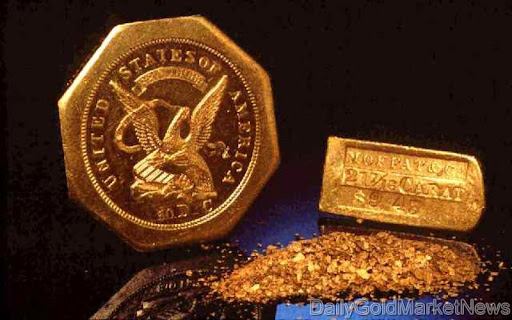Friday, 11 March 2011
ANALYSIS-Gold fends off ECB hawks as debt crisis deepens
 * Debt crisis feeds safe-haven bid for gold
* Debt crisis feeds safe-haven bid for gold
* Real rates to be negative in medium term
* Gold to remain reliant on Fed policy
By Amanda Cooper and Jan Harvey
LONDON, March 11 (Reuters) - Gold prices are likely to weather expected rises in euro interest rates this year as investors fret over the region's debt crisis and the damage tighter monetary policy can do to its patchwork of economies.
A rise in interest rates makes gold less attractive to investors who get improved returns from bank accounts or bonds.
When European Central Bank President Jean-Claude Trichet said on March 3 inflation warranted "strong vigilance", the markets took that as the clearest signal yet that rates will rise for the first time in two years.
The news stripped nearly 1 percent off the gold price in a matter of minutes, but the effect was short-lived. Within a couple of sessions, gold prices rallied to record highs at $1,444.40 an ounce.
"What investors are really looking at is, in our view, a combination of the interest rate environment and expectations for inflation," said Tobias Merath, a commodities analyst at Credit Suisse in Zurich.
The ECB has a delicate balancing act ahead. It is committed to tackling inflation, which has picked up as food and energy prices have soared, yet tighter monetary policy risks undermining the weaker euro zone members and hurting the fledging recovery outside of Germany, the bloc's richest member.
Since Trichet flagged the ECB's intentions, the euro has fallen by 0.2 percent against the dollar, as the vulnerability of the euro zone periphery members has come once again to the fore, while gold priced in euros has risen by nearly 2 percent, shrugging off the threat of higher rates.
"Last year bond yields were on a downtrend for the most part of the year and that makes gold as a non-yielding asset more attractive. We would argue that the longer yields remain low, the more money will find its way into the gold market," Merath said.
GOLDEN SHIELD
The bond markets hounding Portugal to seek a bailout and Moody's cuts to credit ratings for Greece and Spain have highlighted the fragility of the bloc's indebted members and lifted gold's appeal for investors seeking an alternative to stocks or bonds.
Furthermore, real rates in the euro zone -- the ECB's benchmark refinancing rate minus inflation -- are negative, and will remain so unless the nominal rate is lifted by a lot more than the 25 basis points the market is pricing in next month, as long as headline inflation is above the bank's 2 percent target.
"Real interest rates globally are still very low," said Standard Bank analyst Walter de Wet. "Even if the ECB raises interest rates 50 basis points, it seems, given rising inflation expectations, real interest rates will pretty much remain unchanged."
"The default, especially for gold, remains what real interest rates in the U.S. are doing. We know the Fed is not likely to change its monetary stance at all this year and inflation expectations there are rising too."
Dollar-priced gold has gained over 15 percent since August, when the Federal Reserve signalled it would inject over half a trillion dollars into the economy by buying government bonds.
Money markets show investors expect the ECB to raise rates to 1.75 percent by the end of the year from 1 percent now. But inflation is still likely to persist, especially with crude oil trading well above $100 a barrel.
"Our view is that the economy should be able to handle slightly tighter policy. But a lot will depend on the oil price. If that soars above $120, maybe it would delay these expected rate increases. It's by no means a given that we will see rates rise next month," said Credit Agricole analyst Robin Bhar.
Even if headline rates do rise, the violence still sweeping the Middle East and North Africa is likely to offset whatever residual unease this may lend to gold bulls, as it fuels fears of oil-led inflation and burnishes gold's safe-haven status.
The correlation between gold and the euro turned negative in late January, when protests erupted across the Middle East, prompting a flight to perceived safe-havens like gold, but returned to positive territory a month later when the ECB stepped up its inflation-battling rhetoric.
The two assets' normally positive correlation reversed when Greece was bailed out last April and remained negative until late July, when market anxiety over the region's finances temporarily subsided with the creation of a rescue fund, before flaring again when Ireland sought a multi-billion euro lifeline.
"As far as the euro is affected, (the ECB) does have some bearing on gold," said ANZ head of metals sales Peter Hillyard.
"By and large I think gold is less interested in these things and tends to look more at the 'hot-spots' like the Middle East or indeed take a much bigger view."

This post was written by: HaMienHoang (admin)
Click on PayPal buttons below to donate money to HaMienHoang:
Follow HaMienHoang on Twitter












0 Responses to “ANALYSIS-Gold fends off ECB hawks as debt crisis deepens”
Post a Comment